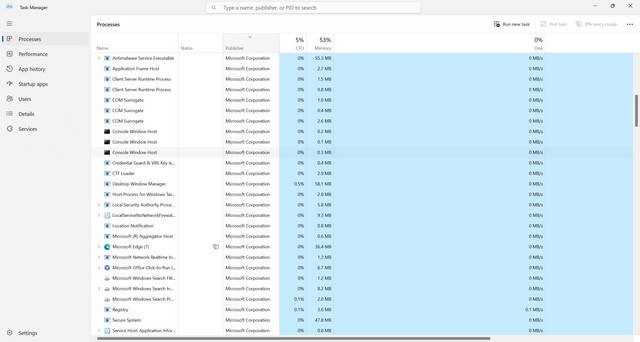When you open the Task Manager on your Windows computer, you may notice a process called “Service Host: DHCP Client” running in the background. This process is an essential part of your computer’s network connectivity and plays a crucial role in obtaining IP addresses and other network configuration settings. In this article, we will explore why the DHCP Client process is running in Task Manager and its significance in maintaining a stable and secure network connection.

Understanding DHCP and Its Role
DHCP stands for Dynamic Host Configuration Protocol, which is a network management protocol used to automatically assign IP addresses and other network configuration parameters to devices on a network. It simplifies the process of connecting to a network by eliminating the need for manual IP address configuration.
The DHCP Client process, represented as “Service Host: DHCP Client” in Task Manager, is responsible for communicating with DHCP servers on the network to obtain an IP address, subnet mask, default gateway, and other network settings. It ensures that your computer has the necessary information to connect to the network and communicate with other devices.
Why Is the DHCP Client Process Running?
The DHCP Client process runs continuously in the background to maintain a stable network connection. It is essential for the following reasons:
- Automatic IP Address Assignment: The DHCP Client process ensures that your computer receives a unique IP address from the DHCP server. This dynamic assignment allows for efficient utilization of IP addresses and simplifies network management.
- Network Configuration Updates: The DHCP Client process periodically communicates with the DHCP server to update network configuration settings. This includes obtaining the latest DNS server addresses, domain names, and other parameters required for proper network operation.
- Network Troubleshooting: In case of network connectivity issues, the DHCP Client process helps diagnose and resolve problems. It can request a new IP address or reconfigure network settings to troubleshoot network-related issues.
Potential Issues and Solutions
While the DHCP Client process is crucial for network connectivity, it can sometimes encounter issues that affect your computer’s ability to connect to the network. Here are some common issues and their solutions:
1. DHCP Client Service Not Running
If the DHCP Client service is not running, you may experience difficulties connecting to the network or obtaining an IP address. To resolve this issue:
- Open the Services window by pressing Win + R and typing services.msc.
- Locate the “DHCP Client” service in the list.
- If the service is stopped, right-click on it and select “Start”.
- Restart your computer and check if the DHCP Client process is running in Task Manager.
2. Malware or Virus Infection
In some cases, malware or viruses can interfere with the DHCP Client process, causing network connectivity issues. It is crucial to regularly scan your computer for malware using reliable antivirus software like Malwarebytes Free. If any threats are detected, follow the recommended steps to remove them and restore the proper functioning of the DHCP Client process.
3. Network Adapter Driver Issues
Outdated or incompatible network adapter drivers can also cause problems with the DHCP Client process. To resolve this issue:
- Open the Device Manager by pressing Win + X and selecting “Device Manager”.
- Expand the “Network adapters” category.
- Right-click on your network adapter and select “Update driver”.
- Follow the on-screen instructions to update the driver.
- Restart your computer and check if the DHCP Client process is running correctly.
Conclusion
The DHCP Client process, represented as “Service Host: DHCP Client” in Task Manager, is a vital component of your computer’s network connectivity. It ensures that your computer receives the necessary network configuration settings, such as IP address and subnet mask, from a DHCP server. Understanding the role of the DHCP Client process and troubleshooting any issues related to it can help maintain a stable and secure network connection.
Remember to regularly scan your computer for malware using reliable antivirus software like Malwarebytes Free to ensure the proper functioning of the DHCP Client process and overall network security.


